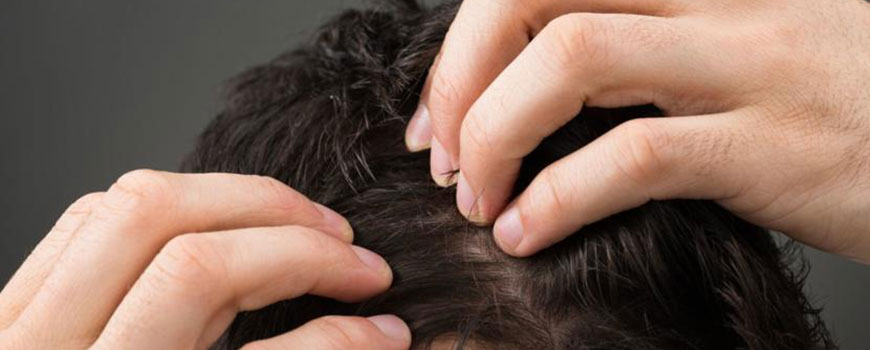Hair Transplant vs. Medication: What’s Right for Me?
Even if you stem from a long line of proudly balding patriarchs, no one loves the moment they begin to lose their hair. Despite the fact over half of all men experience hair loss before age 50, the embarrassment and frustration of seeing more scalp and fewer locks is inevitable.
Thankfully, we now live in an era when science and medicine offer many solutions to this age-old problem. Two of the most popular and effective methods include medication and hair transplant surgery. But with significant pros and cons for each, which one’s right for you?
Let’s dive into some common hair loss situations and discover your perfect hair growth solution.
My hair is just starting to thin. What do I first?
Are you starting to notice excess hair falling out in the shower? Or maybe more of your scalp is beginning to shine through that once impenetrable mane? Don’t panic. Instead, get proactive and hold onto the hair you have left. Early treatment is far and away the best method to minimize future hair loss.
However, calling in the big guns at the first sign of hair loss isn’t typically recommended. Instead, try starting with medications like finasteride or dutasteride before seriously considering hair transplant surgery. With low side effects and high success rates, non-invasive solutions are preferred before jumping straight to surgery.
As long as you continue taking the medication, balding is often kept at bay. However, results can’t be guaranteed and some men won’t see significant improvement. Also, though rare, side effects and drug interactions do exist occasionally making medication unfeasible. In these cases, another hair growth solution might be recommended.
I’ve tried everything and I’m still going bald.
You’ve done it all from shampoos to medications to light treatments with little success. Now might be the time to look into hair transplant surgery. With few side effects and minimal recovery time, this procedure is one of the best and most effective—albeit expensive—ways to permanently regrow your own hair.
Though risks are low, a hair transplant is still a legitimate surgery and shouldn’t be taken lightly. Whether you choose the follicular unit excision (FUE) or the follicular unit transplantation (FUT), the procedure involves hundreds, or even thousands, of tiny incisions made for each hair follicle to be placed into your balding scalp.
Soreness is likely for up to one or two weeks. Within about six months, expect to start seeing new growth in the transplanted areas. After about a year you’ll be showing off your results with new growth so natural even close friends or family may not know you’ve had a transplant. The good news is the results of surgery are essentially permanent.
Am I too young for a hair transplant?
Going bald is never fun, but hair loss for men under 30 is a self-esteem killer. No one wants to look in the mirror in their 20s—or even as early as their teens—and see the head of a middle-aged man. This explains why many young men are interested in invasive hair growth methods including hair transplants.
But how young is too young? Most hair transplant specialists recommend that patients be over age 25 before undergoing the procedure. This is because hair growth patterns often aren’t fully developed until the patient’s late 20s or early 30s. Understanding this pattern is essential in creating a more natural look. In order to ensure optimal results, specialists will wait until this pattern is clear before declaring patients good candidates.
If you’re under 25 but determined to undergo a hair transplant, do contact a hair transplant specialist as occasionally younger patients may be eligible. Even if you’re not yet eligible, your doctor can create a comprehensive plan—likely including medications—to combat hair loss until it’s finally time for a transplant.
A non-genetic condition like stress, a fungal infection, traction etc., caused my hair loss.
Though less common than balding due to genetics, hair loss can also be caused by non-genetic factors including stress, fungal infections, etc.
First off, always go to a dermatologist or hair treatment specialist to confirm your suspicions. They’ll not only diagnose the cause of your hair loss, but they’ll also see if the damage is temporary or permanent, leading you in the right direction for a resolution.
If your hair loss is not genetic and temporary, then medications like minoxidil, other topical medications or scalp injections may speed up recovery. Full recovery could take months to years. However, as long as regrowth is anticipated, practice patience over more invasive or aggressive approaches.
In contrast, if your non-genetic hair loss is permanent, then medications probably won’t be effective. Without living hair follicles, new hair simply can’t grow. In this case, a hair transplant might be the best choice. Still, limitations do exist even with a transplant as surgeons need healthy donor areas to harvest from. If there’s significant hair loss in these areas as well, other options will need to be explored.
Ready to figure out whether medication, a hair transplant surgery, or another hair growth method is the right choice for you? Trust the experts at Limmer Hair Transplant Center in San Antonio, Texas. Our team is dedicated to providing our patients with amazing, professional results and exceptional care. Contact us at (210) 496-9992 or schedule an appointment online anytime.
Is the word tension being used for SEO purposes? This is really known as traction alopecia. Tension could imply emotional stress
True. Fixed! Here and below.
Same comment as above regarding tension





